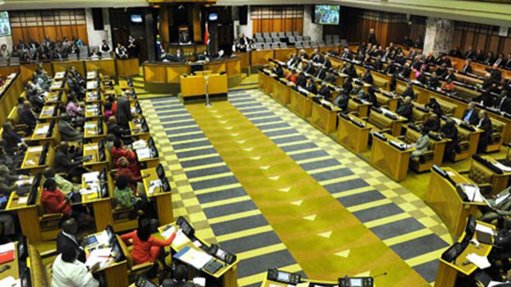
Parliament welcomes the dismissal of the application to the Western Cape High Court to compel it to provide broadcast feed of all incidents during House sittings.
Parliament’s Policy on Filming and Broadcasting, in operation since 2009, regulates recordings of Parliamentary proceedings for public broadcasting that is in the public interest and related to the main business of Parliament. This broadcasting should also be in conformity with acceptable standards of dignity, appropriate behaviour and conduct.
The court found that, while the media has an important role to play, the limitation (in the policy) does not amount to a prohibition. It accepted that “Parliament has the right to protect its dignity and to ensure that its legitimate business is broadcast ... This does not amount to censorship”.
According to the court, “when a member obstructs or disputes Parliament’s proceedings or unreasonably impairs Parliament’s ability to conduct its business in an orderly and regular manner acceptable in a democratic society, that member’s conduct is not legitimate Parliamentary business. What it does is that it undermines rather than promotes the proper functioning of Parliament and the fulfilment of its constitutional obligations
“Accordingly, there is no obligation on Parliament to broadcast conduct that clearly obstructs or disrupts its proceedings and conduct that unreasonably impairs its ability to conduct its business in an orderly and regular manner acceptable in a democratic society simply because such conduct is not legitimate Parliamentary business.
“The measures under discussion are ‘reasonable measures’ employed to regulate public access, including access of the media, to Parliament. When one contrasts this with the suggestion from the Applicants ... that Parliament must feed for broadcasting visuals of the grossest behaviour and gravest disorder without limitation the latter is and remains unreasonable.”
Regarding the jamming device used on 12 February, the court could not find any blame that could be attributed to Parliament.
The court’s view was that courts should guide against conduct which can be described as an intrusion in terms of the constitutional domain of Parliament which is not only unprecedented but has constitutional implications.
The application to declare the policy unconstitutional raised crucial issues. One is whether - and the extent to which - Parliament should determine how it wishes to project its business. Another is whether Parliament’s Constitutional obligation to provide information that is in the public interest is being achieved in terms of the policy.
We welcome the court’s distinction between matters that are in the public interest and matters of interest to the public. Parliament remains committed to facilitating public involvement in and access to its business.
Parliament has always conducted its business in an open manner, holds its sittings in public and has facilitated public access, including that of the media, to the work of the National Assembly, National Council of Provinces and their committees. In recognition of the important role of the media in society, Parliament allocates office space to major media houses in its premises and engages regularly with the media..
The Constitution, however, also enables Parliament to take reasonable measures to regulate public access and states that the public, including the media, may not be excluded from sittings of committees unless it is reasonable and justifiable to do so in an open and democratic society.
Issued by Parliament of RSA